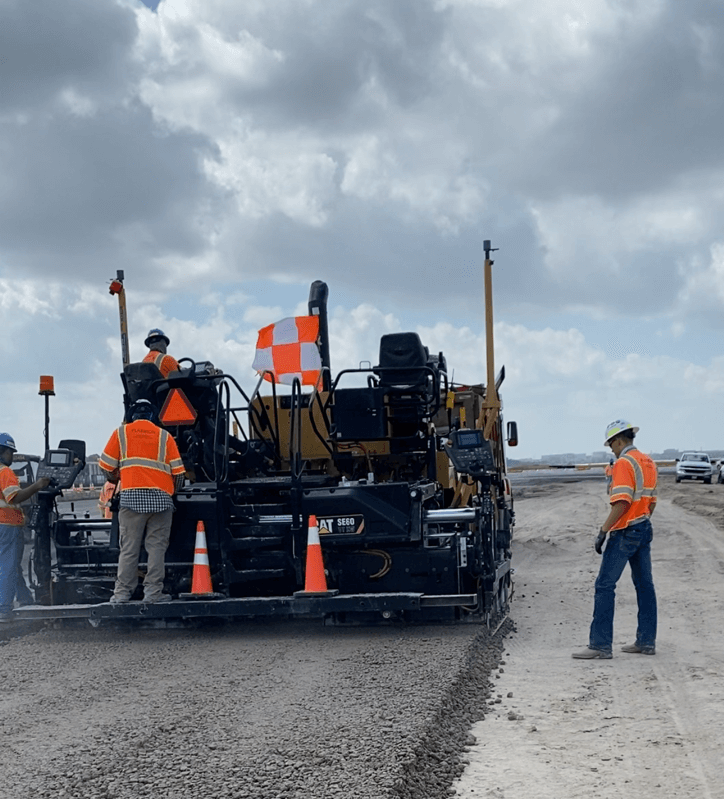Life at Flatiron
The One with the Interns: Fieldwork

By Devon Didion
Recently, the interns spent a week focusing on fieldwork. This was by far one of my favorite weeks to date.
As many of you know from my intro, my story with Flatiron began in 2019 as a laborer. I enjoy being outside and working hard in the summer heat. The biggest adjustment for me so far has been learning to manage the work, rather than perform it. Due to our utility/pipe foreman being out for the week, we were a bit short-handed. As a temporary foreman position was up in the air, I decided to step up and accept the challenge.
For the length of the week, we were scheduled to place P-219 on two different phases of the project. For those who don’t know, P-219 is our proposed base subgrade on this project. A few of my job responsibilities included completing a daily risk assessment, reviewing daily risk assessment verbally with the crew and making sure they understand what is on it. There was also reviewing the daily work plans, transporting crew members to the work site, and making sure they had the necessities required for the workday. But that’s not all, there was also making sure all equipment has been properly inspected, greased, and full of fuel, taking responsibility for the quality of work being done, and completing each days’ timecard with the correct quantities of work that was performed. Again, I had previous laborer experience at Flatiron which led my supervisors to be comfortable with me filling-in as a foreman. But, I think with hard work and a dedication to learning new things, it’s definitely an attainable goal for Flatiron interns.
My week as a foreman went exceedingly well, as a new rolling and compacting strategy was implemented, our crew was able to get 100 percent densities on the P-219, which is required in the FAA spec. Accomplishing same-day, 100 percent densities has been challenging for the past P-219 operations. This is such an important detail because getting the required densities on the same day allow project management to schedule additional P-219 for the following work shift which speeds up the work. By cutting down on our labor, adjusting equipment used on the task, and an improved rolling and compacting pattern, I have been able to reduce the cost and increase efficiencies.
Fieldwork is not a walk in the park, it’s stressful and things will almost always go wrong when you’re least expecting it. It was imperative that I respond quickly to situations that arise, in order to save as much time as possible, and keep our crew progressing on our scope of work. It was a unique experience that has opened my eyes to a lot of things that I had not realized before. Although the internship has not been easy, I have enjoyed every day of it and look forward to learning how I can improve.
